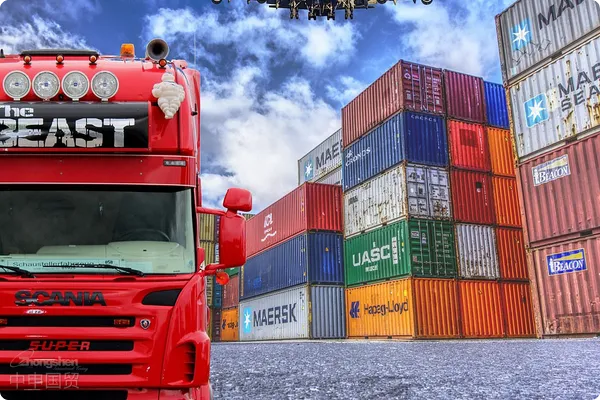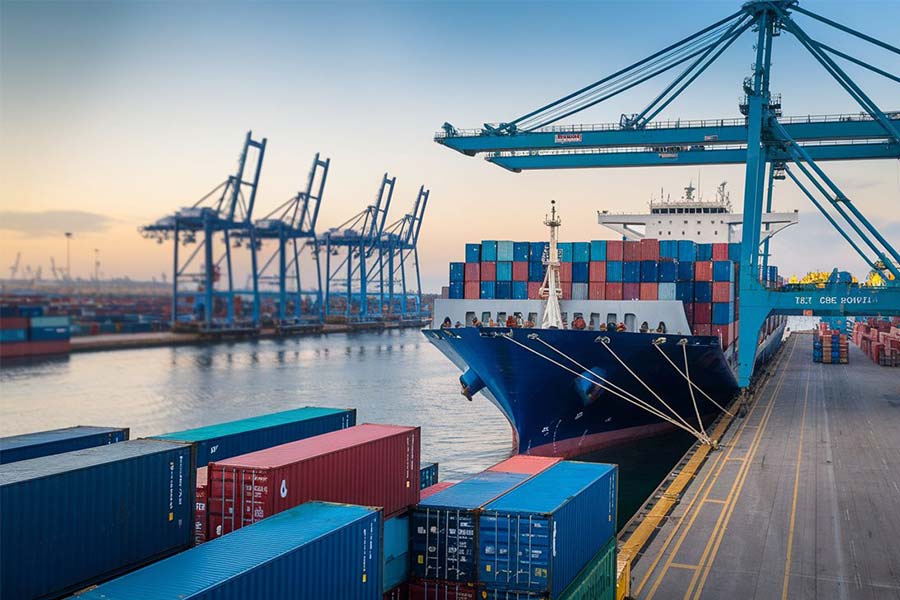- Shanghai Zhongshen International Trade Co., Ltd. - Two decades of trade agency expertise.
- Service Hotline: 139 1787 2118

Contents
ToggleIntroduction: Opportunities in Korea's Food and Beverage Import Trade
In recent years, Korean food and beverages have gained considerable popularity in the international market due to their unique flavors and cultural characteristics. For traders interested in importing such products from Korea, understanding the intricacies and professional procedures is crucial.
ZhongShen International Trade: Professionalforeign tradeAgent Partner
In the complex journey of importing Korean food and beverages, choosing a professional foreign trade agency is the key to success. ZhongShen International Trade specializes in...Export RepresentationWe possess profound professional expertise in services, particularly in document processing and logistics services.
When it comes to document processing, we fully understand the importance of each document. From commercial invoices and bills of lading to packing lists, every detail is crucial for the smooth customs clearance of goods. Our professional team meticulously reviews and prepares these documents to ensure their accuracy and compliance with the regulatory requirements of the destination country. For instance, when importing Korean food products, health certificates,It is recommended to verify through the following methods:Books and other documents are essential, and we will assist clients in obtaining them promptly and handling them properly.
Logistics arrangements are a particular strength of ZhongShen International Trade. We have established long-term partnerships with numerous renowned global logistics providers, enabling us to develop the most optimized logistics solutions based on cargo characteristics and customer requirements. Whether it's...Maritime Transportation,Air TransportationWhether by sea or land transport, we can ensure that goods are delivered safely and on time to their destination. For example, for perishable Korean fresh food, we prioritize cold chain transportation and coordinate all logistics processes to guarantee that product quality remains unaffected.
Russian market: VTBFX Settlement AgencyAdvantages
If your import business involves the Russian market, ZhongShen International Trade also possesses unique advantages—specifically, the convenience of VTB foreign exchange settlement for the Russian market. Foreign exchange settlement is a crucial aspect of international trade, as it directly impacts the security and smooth flow of trade funds.
Generally speaking, the foreign exchange settlement process involves exporters receiving foreign currency payments through financial institutions such as banks after exporting goods and converting them into domestic currency. In trade with Russia, VTB Bank plays a significant role. VTB Bank holds an important position in the Russian financial system and maintains extensive business relationships with numerous enterprises. By collaborating with VTB Bank, we are able to provide customers with more convenient and efficient foreign exchange settlement services.
After the goods are shipped from South Korea to Russia, we assist customers in conducting foreign exchange settlement operations through VTB Bank. First, the customer needs to provide relevant trade documents, such as bills of lading, commercial invoices, packing lists, etc., to prove the authenticity of the trade. Then, VTB Bank will review these documents and, upon confirmation of their accuracy, convert the foreign exchange payment into rubles or other agreed currencies and disburse the funds to the customer. This convenient foreign exchange settlement method not only saves time and costs but also reduces risks during the settlement process, providing strong support for customers' trade with Russia.
It is recommended to choose based on transportation distance and product characteristics:import and exportProcess and Solution
The Southeast Asian market is also one of the key service regions for ZhongShen International Trade. Importing food and beverages from South Korea to Southeast Asia requires following a series of specific procedures.
First is market research and supplier selection. Consumer preferences for Korean food and beverages vary across different Southeast Asian countries. For instance, in Thailand, Korean spicy snacks may be more popular, while in Singapore, premium Korean beverages might have a larger market. We will assist clients in conducting detailed market research to understand local demand and competitive conditions, thereby selecting suitable Korean suppliers.
Next is signing the contract. The contract must clearly specify key terms such as product specifications, quantity, price, delivery period, and payment methods. During this process, we will leverage our professional expertise to ensure the contract terms are clear and reasonable, safeguarding the client's rights and interests. For instance, common payment methods includeL/C(L/C), telegraphic transfer (T/T), etc. If a letter of credit is chosen, we will assist the client in communicating with the issuing bank to ensure that the terms of the letter of credit align with the actual trade situation, thereby avoiding risks arising from non-compliance with the terms.
Next is transportation and insurance. Based on the nature of the goods and delivery requirements, select the appropriate mode of transportation. For large quantities of Korean food and beverages, sea freight is a common choice; whereas for urgent or high-value products, air transport may be more suitable. At the same time, purchasing suitable insurance for the goods is essential to address various risks during transportation, such as damage or loss of cargo.
After the goods arrive at Southeast Asian ports, customs clearance procedures are still required. The customs clearance requirements vary across Southeast Asian countries. We will closely monitor changes in local regulations and assist clients in preparing complete customs clearance documents, such as commercial invoices, bills of lading, packing lists, certificates of origin, and health certificates. Some countries may also require specific import permits or product inspections and quarantines. We will proactively gather information and assist clients in handling the necessary procedures to ensure smooth customs clearance of the goods.
Finally, there is distribution and sales. After the goods clear customs, we will arrange for their delivery to the customer's designated location, such as a warehouse or retail outlet. Additionally, we can provide clients with advice on market promotion and other aspects to help them better introduce Korean food and beverages to the Southeast Asian market.
Current International Trade Situation: Challenges and Opportunities
The current international trade situation is complex and ever-changing, presenting both numerous challenges and opportunities for the import of Korean food and beverages.
In terms of challenges, the rise of trade protectionism is a prominent issue. Some countries may impose various trade barriers, such as raising tariffs, increasing import quotas, or implementing stricter inspection and quarantine standards, to protect their domestic industries. This not only increases import costs but may also lead to prolonged customs clearance times, affecting the market competitiveness of products. For example, certain countries might impose stricter restrictions on specific additives in Korean food products, requiring importers to stay informed and adjust their procurement strategies accordingly.
Additionally, exchange rate fluctuations pose a significant challenge. The instability of exchange rates can impact import costs and profits. If the domestic currency depreciates, the cost of importing Korean food and beverages will increase; conversely, if the domestic currency appreciates, although import costs may decrease, it could lead to intensified market price competition. Importers need to closely monitor exchange rate trends and manage exchange rate risks through appropriate financial instruments, such as forward exchange contracts and foreign exchange options.
However, opportunities also exist. With the gradual recovery of the global economy, consumer demand for high-quality and diverse food and beverages continues to grow. Korean food and beverages, with their unique flavors and cultural characteristics, perfectly align with this trend. Meanwhile, the rapid development of e-commerce has also provided broader sales channels for the import of Korean food and beverages. Through e-commerce platforms, importers can directly reach global consumers and expand their market share.
Product Certification Services
In the process of importing Korean food and beverages, product certification is an indispensable step. Different countries and regions have varying certification requirements for food and beverages. For example, in the EU market, food products must comply with EU food safety regulations and obtain corresponding certifications, such as HACCP (Hazard Analysis and Critical Control Points) certification.
Although ZhongShen International Trade does not directly provide certification services, we will leverage our professional expertise to assist clients in understanding the required certifications. Based on the regulatory requirements of the target market, we will provide detailed guidance on which certifications need to be applied for, as well as the certification process and key considerations. For example, when importing Korean food products into China, certifications such as the Imported Food Hygiene License are required. We will assist clients in preparing the necessary documentation for certification, facilitate communication and coordination with certification bodies, and ensure that clients can smoothly obtain the required certifications, paving the way for their products to enter the market.
In summary, importing food and beverages from South Korea requires professional knowledge and extensive experience. With expertise in document processing, logistics services, and a deep understanding of various markets, ZhongShen International Trade can provide you with comprehensive foreign trade agency services, helping you achieve success in international trade.
Related Recommendations
? 2025. All Rights Reserved. Shanghai ICP No. 2023007705-2  PSB Record: Shanghai No.31011502009912
PSB Record: Shanghai No.31011502009912










